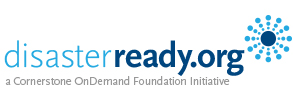behaviors of lost people, how to pinpoint the most likely areas to search, and how to create reflex tasking to deploy teams into the field as quickly as possible. Participants will put their knowledge to practice with numerous map problems.
Friday, January 26, 2018
“Lost Persons Behavior” training 24 February Anne Arundel County, Maryland
behaviors of lost people, how to pinpoint the most likely areas to search, and how to create reflex tasking to deploy teams into the field as quickly as possible. Participants will put their knowledge to practice with numerous map problems.
Relief Goods Distribution. Delivery. FREE ONLINE COURSE. DisasterReady

Objectives:
- Determine when it is advisable to register beneficiaries of relief goods.
- Identify different methods for targeting the recipients of relief goods.
- Describe the factors to consider when distributing relief goods.
- Develop criteria and mechanisms for distributing relief goods.
Available Languages English (US)
Subjects
Administration & Operations > Logistics and Distributionhttps://ready.csod.com/LMS/LoDetails/DetailsLo.aspx?loid=9c172663-0ec0-4c75-8a26-bb5f4617a34e&utm_source=DisasterReady%20Subscriber%20List&utm_campaign=728b0fb2fd-EMAIL_CAMPAIGN_2017_07_18&utm_medium=email&utm_term=0_78ae7a6641-728b0fb2fd-174321189#t=1
Highlight: Researchers Develop More Efficient Conversion Method For Solar Energy
| ||||||||
|
Human Trafficking and the Opioid Crisis Webinar Wednesday, January 31, 2018 | 1–2:30 p.m. Eastern Time
|
Saturday, January 13, 2018
CONDEMN RACISM and SLAVERY in the 21st Century.
CEO
Black Emergency Managers Association International
Washington, D.C.
Friday, January 12, 2018
PrepTalks Symposium to be held from 12:00 pm to 5:00 pm in Washington, D.C. on January 29, 2018
|
PrepTalks
are given by subject matter experts and thought leaders to spread new ideas,
spark conversation, and promote innovative leadership for the issues
confronting emergency managers now and over the next 20 years.
PrepTalks are
a partnership of the emergency management community:
·
The Federal Emergency Management Agency
·
The International Association of Emergency
Managers
·
The Naval Postgraduate School Center for Homeland
Defense and Security
·
The National Emergency Management Association
·
The National Homeland Security Consortium
The
registration page for the January
29, 2018 Symposium is now live at: https://www.onvcp.org/private/training/events/preptalks2018/
It
is important for attendees to know:
· The
PrepTalk presentations will be filmed, so attendees will not be able to enter
or leave the auditorium during the program. Attendees are expected to
stay for the duration of the program, from 12:00pm to 5:00 pm.
· There
will be a short Q&A after each presentation and audience members will be
able to ask questions.
Speakers:
|
||||||||||||||||||||||||||||||||||||||||
|
Black
Emergency Managers Association
International
|
||
|
1231
Good Hope Road S.E.
|
||
|
Washington,
D.C. 20020
|
||
|
Office:
202-618-9097
|
||
|
bEMA International
|
||
Tuesday, December 26, 2017
SITREP. Water Security. Starkist, U.S. EPA, American Samoa Settlement.
|
For Immediate Release: December 26, 2017
https://www.epa.gov/newsreleases/starkist-enhance-environmental-and-safety-measures-facility-american-samoa # # # |


